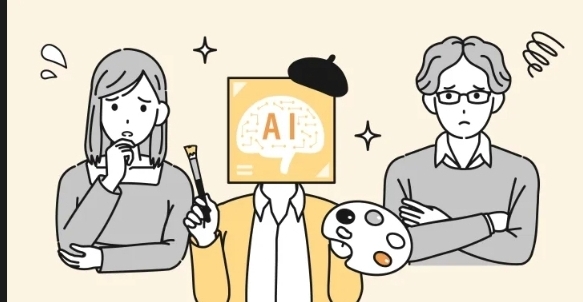
Artists are among the many groups who will feel the effects of AI over the next few years, but it’s not doom and gloom for everyone. A group of artists have organized an open letter to Congress, arguing that generative AI isn’t so bad and, more importantly, the creative community should be included in talks about how the technology should be regulated and defined.
The full letter and list of signatories is here; the gist is that AI, machine learning and algorithmic or automated tools have been used in music, art and other media for decades and this is just another tool.
As such, those who use the tools, whether that’s as software engineers or painters, should be consulted in the process of guiding their development and regulation.
Here’s an edited snippet of the letter:
Just like previous innovations, these tools lower barriers in creating art — a career that has been traditionally limited to those with considerable financial means, abled bodies, and the right social connections.
Unfortunately, this diverse, pioneering work of individual human artists is being misrepresented. Some say it is about merely typing in prompts or regurgitating existing works. Others deride our methods and our art as based on ‘stealing’ and ‘data theft.’ …many individual artists are afraid of backlash if they so much as touch these important new tools.
Sen. Schumer and Members of Congress, we appreciate the ongoing hearings, ‘Insight Forums,’ and other initiatives focused on regulating generative AI systems and that your goal is to be inclusive, pulling from a range of ‘scientists, advocates, and community leaders’ who are actively engaged with the field. Ultimately, that must mean including artists like us.
We see a unique opportunity in this moment to shape generative AI’s development responsibly. The broad concerns around human artistic labor being voiced today cannot be ignored. All too often, major corporations and other powerful entities use technology in ways that exploit artists’ labor and undermine our ability to make a living. If you seek to ensure generative AI’s revolutionary trajectory benefits humanity as a whole, it would be a gross oversight to exclude those in our society who are working within its potential and its limitations.
There’s certainly reason and wisdom in these words, and the government ignores the creator community at its peril if it intends to form a diverse and representative group to advise its deliberations around AI.
But the letter, despite being published under the auspices of Creative Commons, conspicuously mischaracterizes the most serious criticism of the AI systems artists object to: that they were created through wholesale IP theft that even now leverages artists’ work for commercial gain, without their consent and certainly without paying them. It’s a strange oversight for an organization dedicated to navigating the complex world of digital copyright and licensing.
While there may be some who subjectively deride AI-assisted art as mere prompt engineering or what have you, many who object do so because the companies that created these tools did so in ways that exploited artists. Whether art resulting from such systems is derivative or original, it’s reasonable to consider it as the fruit of a poisoned tree.
𝗦𝗲𝗺𝗮𝘀𝗼𝗰𝗶𝗮𝗹 𝗶𝘀 𝘄𝗵𝗲𝗿𝗲 𝗿𝗲𝗮𝗹 𝗽𝗲𝗼𝗽𝗹𝗲 𝗰𝗼𝗻𝗻𝗲𝗰𝘁, 𝗴𝗿𝗼𝘄, 𝗮𝗻𝗱 𝗯𝗲𝗹𝗼𝗻𝗴. We’re more than just a social platform — from jobs and blogs to events and daily chats, we bring people and ideas together in one simple, meaningful space.